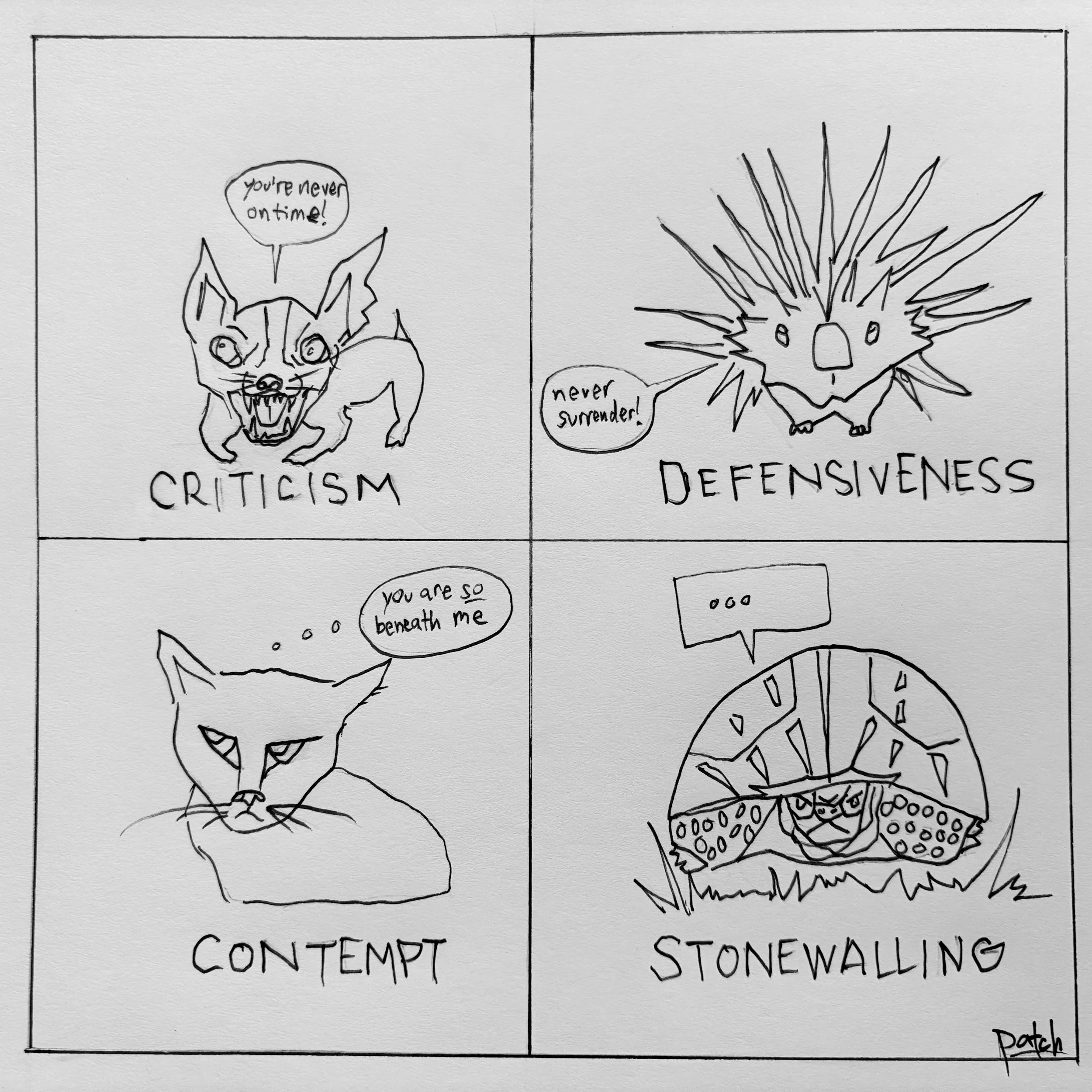What makes you a difficult business partner?
If you just gulped reading that title, perhaps this article is calling you. Sorry! 😂 And if you clicked through, you’re growth oriented so gold star for you.
Okay, I’ll start with one thing that made me difficult, even though there were a couple. For background, I spent a decade in advertising running boutique ad agencies, my last role being Managing Director. Today I’m a licensed couples therapist and cofounder consultant. I was…drumroll please…passive aggressive in public with my biz partners. It was like a pressure valve I’d release in the most unhealthy and indirect way possible. This led to lose-lose scenarios where I lost because my gripes weren’t being properly resolved and they lost because a.) I wasn’t communicating my needs clearly and b.) they were being passive aggressively put down in public. Nobody won. And to name my behavior technically, it was contemptuous. To name it colloquially, it was disgusting. But guess what, very common in my work with co-founders!
Maybe it’s different for you. Maybe you are directly hypercritical of your business partner, or maybe you’re the person on the other end who is always on the defense and never admits any fault. Or maybe you simply withdraw from conflict all together because it’s too much, you just put your head down and back into the bushes like Homer Simpson. Or perhaps you, like me, liked to defend yourself by righteously making people feel “less than”.
The Gottman’s (biggest name in couples therapy) developed The Four Horsemen, four behaviors that lead to divorce in married couples, with 91% accuracy in prediction. Believe it or not, your business partnership is your second marriage, and the same rules apply. Engage in these 4 behaviors unrelentingly, and you will break up, whether it’s your romantic partnership at home, or your business partnership at the office. They are: criticism, defensiveness, contempt, and stonewalling.
Criticism: character attacks often using words like “never” “always” vs. sticking to specific incidents
Defensiveness: typically a response to perceived criticism, playing the victim and not taking accountability
Contempt: verbally or non-verbally communicating our superiority via sarcasm, ridicule, eye rolling, scoffing, etc.
Stonewalling: typically a response to contempt, we turn to a stone and go silent, shut down, completely tune out and withdraw
See yourself, your business partner, or your colleagues in these descriptions? Join the club. At least you’re now aware and can solve the problem. If you think this shouldn’t take priority over your bottom line, think again. It should be at least the same level of priority. You won’t have a bottom line to speak of if you put off dealing with these behaviors.
Thankfully each has an antidote.
For criticism, it’s assertive communication. This is the greatest superpower I’ve personally ever learned, both personally and professionally. As a former client lead who managed many difficult relationships, assertive communication came naturally but needed to be refined for more personal relationships.
For defensiveness, it’s taking accountability. Owning your part in things and cleaning up your side of the street. Even if you don’t agree with everything someone is saying, lead with the kernel of truth you do see in their points.
For contempt, it’s both using assertive communication AND building a culture of appreciation. So first, release the pressure valve by actually effectively communicating. Second, you MUST build a 5 to 1 ratio of appreciation to critique in your organization and with your business partners. Without appreciation.) we all burn out and b.) contempt builds.
For stonewalling, it’s learning to take a time out and regulate your nervous system. If you turn into a stone and shut down any time something difficult happens, you’ve become unreachable. Your body is going into the most primitive protective state, freeze. So you must take a walk, breathe, meditate, journal, anything to bring you back into functionality for your partners and your team.
Newsflash: we’re all difficult in one way or another. It’s not the end of the world and it’s all workable, if you work at it. And hey, improving things at work will improve things at home, so yay to efficiency and integration.
